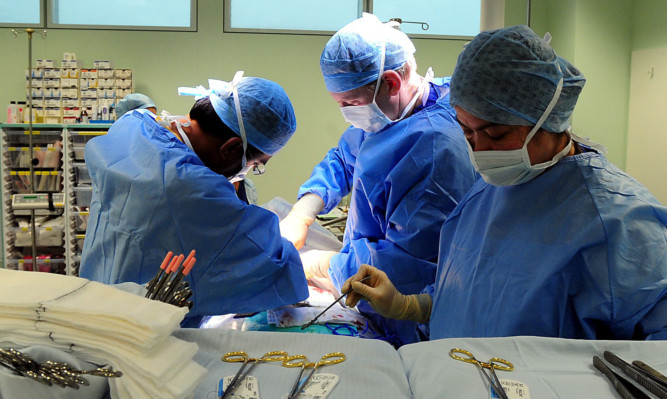More than 400 patients in one month had planned hospital operations cancelled due to factors including a lack of beds, staff and equipment.
Figures released for the first time show that in May there were 22,331 scheduled operations across NHS Scotland, of which 2,160 (9.7%) were cancelled either by the hospital or by the patient.
A total of 415 were cancelled by the hospital due to “capacity or non-clinical reasons”.
This includes the unavailability of beds, staff and equipment as well as employee illness, dirty equipment and theatre sessions overrunning.
The figures do not include operations within NHS Greater Glasgow and Clyde, which was unable to provide data “due to unforeseen technical difficulties”.
Separate statistics show that health boards treated more people than ever before during the first three months of the year.
Inpatient and day case discharges in the surgical, medical and dental sectors increased by 5,300 to just over 393,000 compared to the same quarter last year.
The number of patients who did not turn up to outpatient appointments without any notice has dropped from 10.4% in March 2010 to 9.8% in the latest quarter.
Health Secretary Shona Robison said: “Our health service is treating more people than ever before with record number of people coming through our hospitals.
“As we have already seen in our A&E departments, this winter has brought an increase in attendances and admissions, as well as more severe flu-related illnesses and more people with complex illnesses, and today’s figures show that the second half of winter has remained very challenging.
“I would like to thank staff in Scotland’s NHS for continuing to do a fantastic job.
“Figures also released today show that the number of occupied beds has remained relatively stable and continues to show seasonal trends.
“We want to see a fundamental shift away from hospital care towards care in the community and it is important to have the right number and mix of beds available to treat patients.
“NHS boards plan carefully on this basis, which is demonstrated by a reduction in surgical beds, as we rely more on day surgery.
“Reducing the number of people who are unnecessarily in hospital is one of my key priorities, which is why this government recently committed £100 million to tackle delays in discharging patients from hospital.
“As we move towards the roll-out of health and social care integration we have created around 700 more intermediate care beds in order to support the shift of more services into community settings.”
